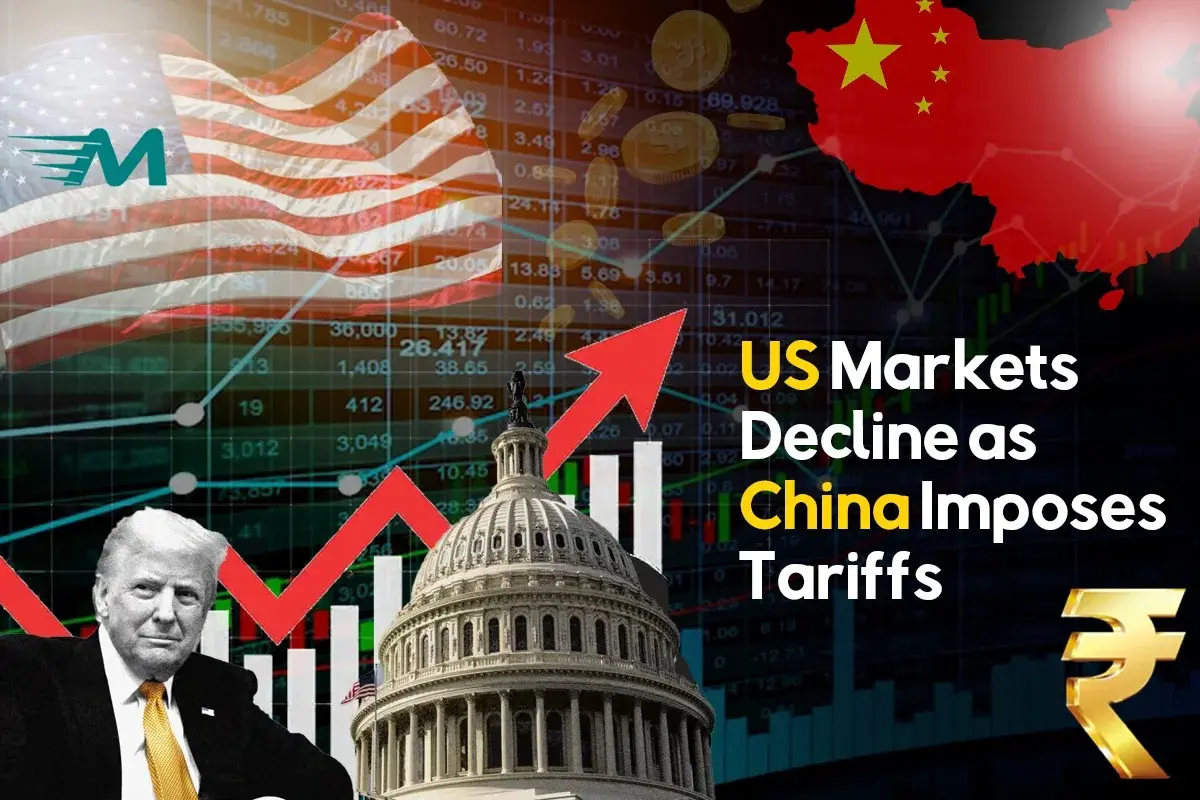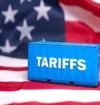US Markets Decline as China Imposes Tariffs; Dow Drops 100 Points
A significant market downturn, the US markets experienced a notable decline today, with the Dow Jones Industrial Average falling by 100 points. drop was primarily triggered by China’s announcement of new tariffs on American goods, escalating tensions in the ongoing trade war. Rumors are now closely monitoring today’s stock to watch, as the market reacts to these developments.
Escalation of the Trade War
The tra conflict between the United States and China has been intensifying, with both nations imposing tariffs on each other’s imports. China’s Best move to levy additional tariffs on US products is seen as a direct response to previous US tariffs on Chinese goods. This tit-tat strategy has heightened market volatility and raised concerns about the global economic outlook.
Historical ch trade disputes have led to prolonged economic uncertainties. The imposition tariffs often results in increased costs for businesses, which can lead to higher prices for consumers and disruptions in supply chains. The current escalon mirrors past trade tensions, where initial tariffs led to retaliatory measures, creating a cycle of economic strain.
Impact on the Jones Industrial Average
The immediate effect of China’s tariff announcement was evident in the US stock markets. The Dow Jones Industry Average, a key indicator of market performance, dropped by 100 points. This decline reflects its apprehension about the potential negative impacts of the escalating trade war on American businesses and the broader economy.
Such market reactions arouncommon during periods of heightened trade tensions. Investors often respond to utainties by pulling back investments, leading to declines in major stock indices. The current drop in the Dow uncores the sensitivity of financial markets to international trade policies and the actions of major economic players like the US and China.
Key Stocks Affected
Severaljor companies felt the brunt of the market downturn:
- Apple Inc. (AAPL): As a significant player with substantial exposure to China, Apple’s stock faced declines amid concerns over increased production costs and potential sales impacts.
- Boeing Co. (BA): With China ng a crucial market for eing, the new tariffs could affect future aircraft orders, leading to a dip in its stock price.
- Caterpillar Inc. (CAT): Given reliance on the international market, particularly China, Caterpillar’s shares declined due to fears of reduced demand for heavy machinery.
These companies represent sectors that are highly sensitive to international trade dynamics. The technology, aerospace, and heavy machine industries often rely on global supply chains and international markets for revenue. Tariffs can disrupt these supply chains, increcosts, and reduce demand, leading to declines in stock prices.
Historical Context: Trump’s Tariffs
The court situation is reminiscent of previous tre tensions under former President Donald Trump’s administration. Trump’s tariffs on Canada, Mexico, and China were significant events that impacted global trade dynamics.
Trump’s Tariffs on Canada and Mexico
In an effort to renegotiate trade agreements, the Trump administration imposed tariffs on Canadian and Mexican goods. These actions led to strained relations with these neighboring countries and prompted retaliatory measures.
The tariffs aimed to protect American industries but tilted in increased costs for US businesses that relied on imported materials. For instance, tariffs on steel and aluminum affected manufacts who used these materials, leading to higher production costs and, in some cases, job losses.
Trump’s Tariffs on China
The most notable trade actions were directed at China, with the Imposing tariffs on a wide range of Chinese imports. This move aimed to address trade imbalances and intellectual property concerns but resulted in a prolonged trade war affecting global markets.
The tariffs led to retaliatory measures from China, including tarifaS agricultural products, which significantly impacted American farmers. The prolonged trade tensions contributed to market volatility and eco uncertainty, affecting investment decisions and economic growth.
Broader Economic Implications
The re-escalation of trade tensions several potential consequences:
- supply Chain Disruptions: Companies may face challenges in sourcing materials and components, leading to production delays and increased costs.
- Consumer Prices: Tariffs can lead to higher prices for consumer goods, companies may pass on increased costs to customers.
- Global Economic Slowdown: Prolonged trade disputes can dampen economic growth worldwide, affecting various industries and markets.
Additionally, tariffs can lead to inflationary pressures. As production costs rise higher import prices, businesses may increase prices for summers, contributing to overall inflation. This scenario can complicate monetary policy decisions, as central banks balance the need to control inflation with supporting economic growth.
Investor Sentiment and US Markets Outlook
Investor sentiment has turned cautious amid the red trade tensions. Many are adopting a wait and-see approach, closely monitoring developments between the US and C. Analysts suggest that markets may remain volatile in the near term, with today’s stock watching those in industries most affected by international trade policies.
Investors are particularly concerned about the uncertainty surrounding future trade policies and potential impacts on global supply chains. This uncertainty can lead to reduced investment, slower economic growth, and increased market volatility. Diversification and a focus on companies with limited exposure to international trade tensions may be prt strategies in the current environment.
Conclusion
The US stock market’s recent decline underscores the significant impact of international te relations on financial markets. As China imposes new tariffs in response to ongoing disputes, investors are advised to stay informed and consider the broader economic implications. Monitoring today’s stock to watch will be crucial for those looking to navigate the current market environment.



